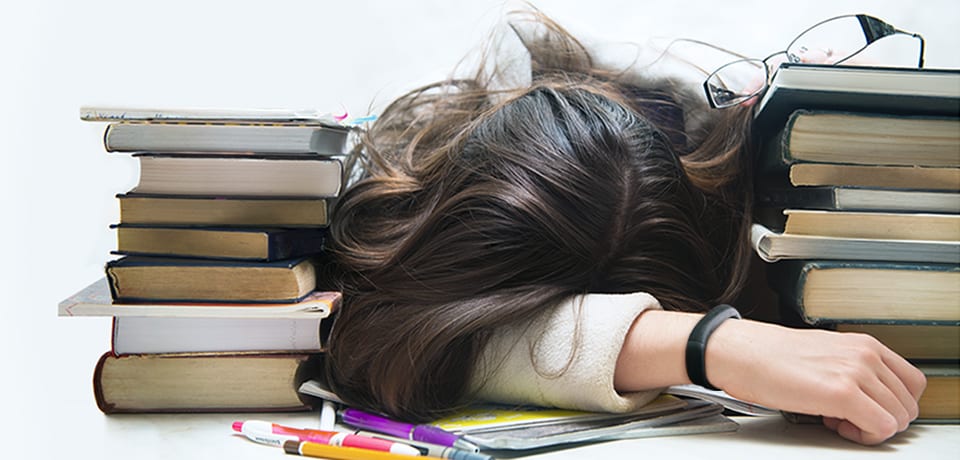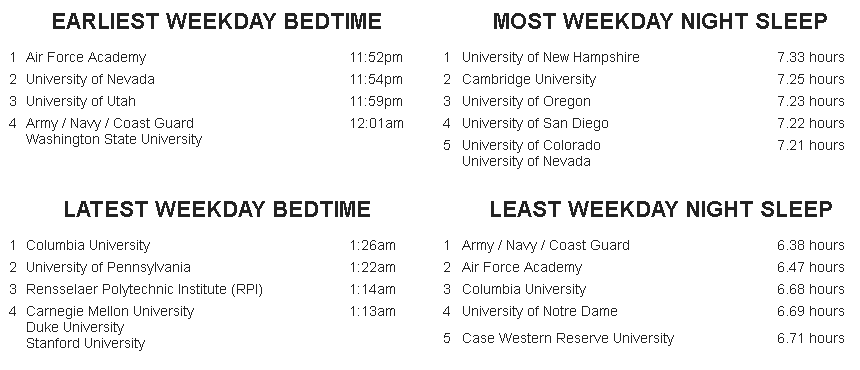
Good sleep is strongly linked to learning, memory, creativity, and problem solving. However, poor sleep habits notoriously plague college and university students, depriving them of performing their best when it matters the most. Research into the problem has generally been limited to sleep surveys of single universities, for short periods, of less than 1,000 students (1–10, for example). Leveraging the sleep tracking capabilities of UP , we can take an unprecedented look at how tens of thousands of college students sleep across the country at over 100 universities, totaling 1.4 million nights of sleep.
HOW UNIVERSITIES SLEEP
https://sleepfoundation.org/press-release/national-sleep-foundation-recommends-new-sleep-timestudents who track their sleep with UP at these schools average 7.03 hours of sleep during the week, and 7.38 hours of sleep on weekends. Female students get significantly more sleep than their male counterparts, averaging 23 more minutes per weeknight and 17 more minutes per weekend night. The National Sleep Foundation recommends that students get between 7-9 hours of sleep per night. At first blush, this may appear that students are getting enough sleep. However, framed another way, students slept less than 7 hours on 46.2% of the nights in this study.
An even larger difference can be seen between bedtimes for men and women. On weeknights women go to sleep on average at 12:23am and wake up at 8:09am, while men go to bed 39 minutes later and sleep in 22 minutes more. On weekends the effect is even larger: women go to bed at 1:01am on average and wake up at 9:07am, with men going to sleep 42 minutes later and sleeping in 28 minutes more.

The US military academies are unique when it comes to sleep. During the week they average waketimes of before 7am — the next earliest are the University of Utah and Brigham Young University averaging around 7:40am. The military academies are the most sleep deprived of all the schools during the week, averaging less than 6.5 hours per week night. They make up for it on weekends, averaging more than 7.25 hours per night.
ACADEMIC PERFORMANCE AND SLEEP
We see a strong relationship between a school’s average bedtime on weeknights and their US News and World Report’s 2016 college ranking (data nerds: r2 = 0.45). The tougher the school, the later the students go to bed, with Columbia and UPenn having the latest bedtimes. We also looked for a relationship between urban/city schools and suburban/rural schools and bedtime, but the effect was small and weak. The relationship between these rankings and amount of sleep was also weak (r2 < 0.1). This seems to confirm the findings — that higher general intelligence (but not necessarily academic performance and grades) is associated with night owls. (One paper claims that the linkage between the two may be men’s mating success—but we’ll leave that to another study .
With wearables like UP and products like Smart Coach, we can take a unique look at sleep, which helps us make smarter predictions and recommendations for our users’ health than ever before.






